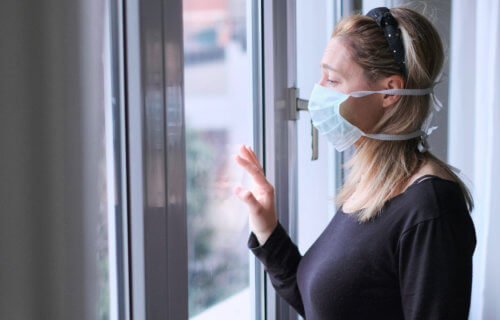RIVERSIDE, Calif. — What’s the key to beating loneliness during a year-long viral pandemic? Is it daily video chats? Podcasts played on repeat? Or perhaps an exercise regimen so intense you forget that you’re lonely? Researchers from the University of California, Riverside have uncovered a surprising way to overcome loneliness. Make your daily, mundane tasks uniquely yours.
Even if it is something as unexciting as taking out the trash or brushing your teeth, add in a little twist. Perhaps on your way out to the curb to take out the garbage, you check up on your garden. Similarly, perhaps you have a go-to playlist for cleaning chores.
“We found that something as simple as preparing tea in a certain way, as long as it’s interpreted as a ritual, can make the experience more meaningful,” says Thomas Kramer, a professor of marketing at UC Riverside’s School of Business, in a university release. “This makes people feel less lonely.”
At the crux of these findings is the observation that many people who struggle with loneliness feel as though their lives lack meaning. These unique little rituals, regardless of how silly they may seem at first, add up over time and instill a sense of living a deliberate life.
It’s no secret that the rituals we share culturally, religiously, and socially bring meaning to our lives. It’s why we blow out candles on birthdays and why Christians receive communion on Sundays.
Can your Oreo-eating technique cure ease quarantine loneliness?
For this work, study authors set out to see if rituals linked to various consumer products could also provide meaning.
“Nobody in marketing has ever looked at rituals with private meaning,” Kramer explains. “A lot has been done on what they do, for example, promoting self-control. But no one has looked at whether or not idiosyncratic, private rituals provide meaning in the context of consumer products.”
First, researchers surveyed a group of participants on their levels of chronic loneliness. Then, the team asked each subject about any usual rituals they act out before, during, or after using any everyday products. After that, the participants engaged with various products, going through their normal rituals. For example, eating an Oreo via the “twist-lick-dunk” technique. Some participants were even told to complete an exercise designed to promote loneliness before interacting with a consumer product.
Researchers report that people who habitually act out the most rituals each day also tend to feel lonely most often, suggesting these habits help ease the burden of isolation. Also, such rituals helped participants feel less lonely and report more meaning in their lives after completing exercises designed to induce loneliness.
“Many people are trying to find structure right now because everything is so chaotic,” Kramer concludes. “The implications of our study are that if you feel lonely, find a ritual. It doesn’t have to be elaborate. It can help you feel less lonely by providing a sense of meaning and purpose.”
The study is published in the Journal of Marketing Research.
